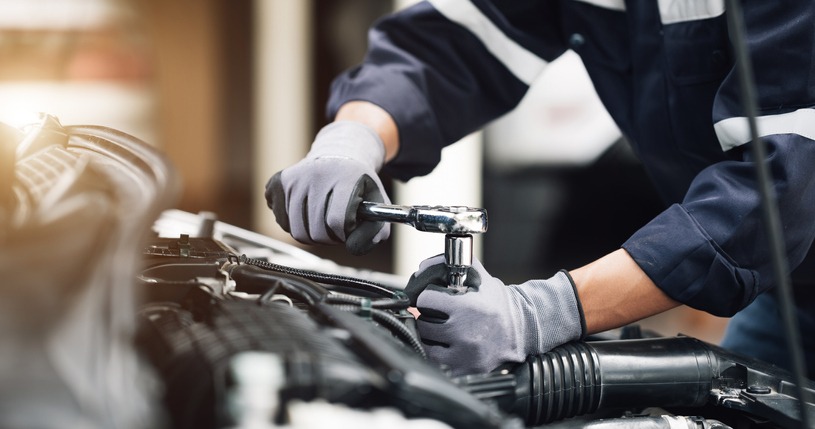Do you ever wonder what that strange noise comes from your car engine? Or worse – agonizing over when it’ll get bad enough to make you pull the plug and pay for expensive repairs?
Without a doubt, taking care of our beloved vehicles can be quite costly – especially if we don’t keep an eye out for warning signs.
That’s why today we’re here with five common engine noises (every driver needs to know) that should always be addressed, as they could result in much more severe issues down the line!
So take note and learn to identify these troublesome sounds before they cause any actual harm.
1. A knocking noise coming from under the hood
Have you ever heard a mysterious knocking noise coming from the depths of your car’s engine? It might have disturbed you and made you worry about the strange sound it was making.
Be cautious – an alarm bell could ring under the hood, signaling that your engine is dangerously low on oil.
That knocking noise could be trying to tell you something important – don’t ignore it! Make sure to have an expert check the levels or even change the oil if necessary.
When an engine doesn’t have enough oil, the metal components can start to rub together, causing a knocking noise.
If you hear this noise, you should check your oil level and add more if necessary. If you can’t do it, a Toyota mechanic near me can check the details and change the oil if necessary.
He will do the following:
- determine the cause of your issue
- diagnose the problem
- provide you with a clear plan for repairs
But if your engine is seriously damaged, it will be more expensive. In that case, consider replacing it altogether.
2. A hissing noise coming from under the hood
If you hear a hissing sound from under your car’s hood, don’t ignore it! A few simple tests can tell you if it’s a harmless issue, like a loose radiator cap, or something more serious, like a coolant leak.
Keeping an eye and ear out for any potential problems is essential in maintaining the internal condition of your vehicle.
Checking regularly for indications like strange noises or smells coming from the undercarriage may save you hundreds, if not thousands, of dollars on auto repair bills in the future.
When diagnosing engine noise, check to see if your coolant levels are satisfactory, as that could easily be linked with potential issues such as leaks under your hood.
If your engine is leaking coolant, it will eventually overheat and sustain damage.
To check it out, you can pop the hood and look for signs of a leak. You should also have your car checked by a mechanic.
3. Squealing noise when starting the engine
If you hear a squealing noise when starting the engine, it could indicate that the serpentine belt is loose or damaged.
The serpentine belt is responsible for driving all car accessories, such as the alternator, power steering, and water pump. If the belt is damaged, it must be replaced.
To check it out, you can pop the hood and look for signs of a loose or damaged belt. If you need help replacing the belt, your mechanic can do it.
4. A roaring noise while driving
If you hear a roaring noise while driving, it could indicate that your muffler or exhaust system is damaged.
A damaged muffler or exhaust system can cause your car to be louder than usual and can also lead to harmful fumes being emitted from your vehicle.
If you hear this noise, your muffler or exhaust system should be inspected and repaired as soon as possible.
To check it, do the following:
- Open the hood and pop the car for inspection.
- Look for signs of damage, such as rust or dents in the muffler or exhaust system.
If you suspect your muffler or exhaust system is damaged, have it repaired by a qualified mechanic.
5. A clicking noise when turning the steering wheel
If you hear such noise when turning the steering wheel, it could indicate that your power steering system is low on fluid.
When the power steering fluid gets low, it can cause the components in the system to wear out prematurely. If you hear this noise, you should check your power steering fluid level and add more fluid if necessary.
To check it, do these steps:
- Open the hood and pop the car for inspection.
- Look for power steering fluid leakage signs, such as puddles under the car or wet patches on various components.
If you suspect your power steering system is low on fluid, add more using a funnel to prevent spills. If you need help adding the fluid, a mechanic can do it.
Pay attention to engine noises
Though ignoring strange noises from your car may be tempting, Ignoring engine noise can result in more significant damage and costly repairs.
If you take the time to pay attention to your car, you can avoid serious problems down the road.

